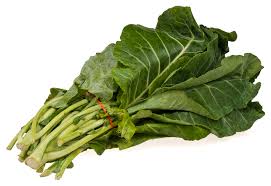
This isn't the case for the starving people around the world. They need sustenance to carry on each day. No pickiness for them—no craving for sweet treats. Just enough rice of grain to help them survive one more day. I wish I could help them by prayer and meditation alone. That's the only device I can use, being poor and old myself. But I'm not hungry. In England, when you reach retirement, you receive a pension.
So, how can we equal the stakes? No point in everyone starving to show solidarity. Perhaps we could remove temptation from our kitchen and stick to foods that actually nourish us.
Let's call it a kitchen detox. If you keep the wrong sort of food in your house you will end up eating it. Throw out breakfast cereals which are full of sugar and preservatives, processed and convenience foods, margarine (it's much better to use butter if you can tolerate dairy), canned meals such as spaghetti hoops, gluten grains, salad dressings (make your own with apple cider vinegar, olive oil, mustard powder, fresh rosemary, garlic and sea salt), biscuits, cakes and sweets.
Restock your fridge with protein such as eggs, chicken, meat and fish, feta cheese, pulses, nuts and seeds, salad and vegetables and dairy alternatives such as coconut milk. Use coconut and olive oil for cooking and gluten-free flour such as coconut or rice flour for baking or thickening sauces. Quinoa is a great alternative to rice and couscous.
Another thing we should do is stop snacking. Many of us believe we should eat little and often and spend the day grazing, barely going an hour without consuming something. Constant eating stimulates the production of insulin that can put our bodies into fat storage mode.
The worst offenders are refined carbohydrates and sugary treats but even eating healthy snacks means our body has to work constantly to process them.
It's not a good idea to go cold turkey on snacking. You need to make sure you are eating properly the rest of the time.
Every meal should be made up of fat, protein and plants to help fill you up and balance your blood sugar levels. Most importantly try not to snack in the evening. It is important for your metabolism to fast for 12 hours overnight so stop eating after dinner and don't start again until breakfast.

• Fermented foods Fermenting is an ancient way to preserve foods. Sauerkraut is probably the easiest to find but pretty much any vegetable can be fermented if you do it yourself. Fermented foods help to supply the digestive system with beneficial bacteria.
• Healthy fats Coconut oil, avocado, organic and free-range eggs, wild salmon and olive oil are good sources and play a role in brain health.
• Dark green, leafy vegetables Vegetables such as spinach, kale, broccoli and cabbage contain folate, which studies have shown may reduce symptoms of depression. This is because folate is used by the brain to make feel-good hormones including serotonin and dopamine.
Source: Eat, Nourish, Glow by Amelia Freer.
All these foods are available to us. If something is too expensive, give up another food you can do without. We're so lucky to live in affluent, free countries. Wars going on around the world have left so many ordinary families destitute. Don't disrespect their plight by scoffing rubbish food. Make this effort for the sake of all humanity if not for your own health.





 RSS Feed
RSS Feed
